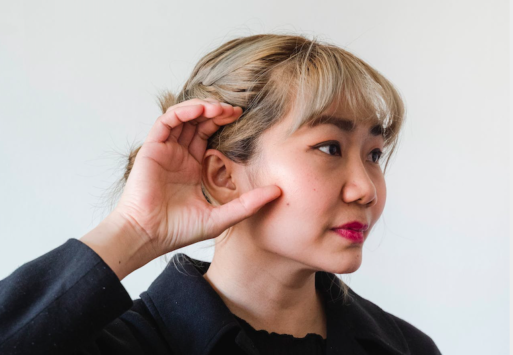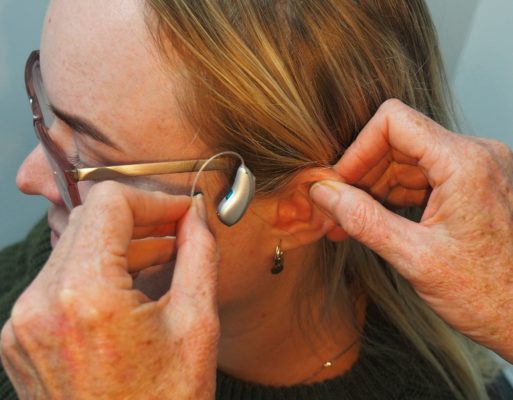
Credit: Kevin Malik
What’s that? Using hearing aids can prevent early death, according to a study published earlier this month in The Lancet Healthy Longevity Journal.
While hearing loss has long been recognized as a risk factor for mortality and other health challenges, it was previously unclear as to whether hearing aids might mitigate this potential. To explore this possibility, researchers studied data from nearly 10,000 U.S. adults gathered from 1999-2012, more than 1,800 of whom had hearing loss. Then, they tracked these individuals on the National Death Index through 2019.
“What we found was that there was a 24% lower risk of mortality for people who use hearing aids,” Dr. Janet Choi, an assistant professor of clinical otolaryngology-head and neck surgery at the University of Southern California’s Keck School of Medicine, told CNN.
The study noted that positive outcome depends on the regular use of the aids, defined as “at least once a week, once a day or almost always.” Those who used them once a month or less saw no difference in mortality outcomes than non-users. Researchers accounted for participants’ demographics and medical history. But, they could not adjust for other potentially influential factors such as depression, social engagement or cognition.
Hearing Aids May Also Prevent Dementia
However, a separate study also published earlier this month, found that individuals with hearing loss, who do not use aids, face a significantly higher risk of dementia. The study, which followed nearly 575,000 people aged 50 and up in Southern Denmark from 2003-2017, appeared in JAMA Otolaryngology Head & Neck Surgery.
Researchers found that hearing loss was associated with a 7% higher risk of dementia. This risk was considerably higher for those, who did not use hearing aids. Other studies have similarly shown that use of aids to hear can reduce the rate of cognitive decline by nearly 50% over three years.

The key to the life-giving benefit of hearing aids is wearing them regularly.
Credit: Mark Paton
Millions Affected by Hearing Loss Could Benefit
Some 48 million Americans suffer from hearing loss, according to the Hearing Loss Association of America. However, most do not use hearing aids. Those who do choose to use them often wait an average of seven years to obtain them. And according to the most recent Lancet study, only about 12% of those people end up wearing them regularly.
“Hearing loss is an invisible problem, and it happens gradually, so it takes time for you to get used to hearing aids and then get the benefit,” Choi told NPR. She recommends that new users wear their hearing aids every day for a month to become accustomed to them.
Regular use vastly changes one’s experience, as Choi, who was born with hearing loss in one ear, has learned for herself. She noted, “There were a lot of sounds I was missing.”

 Hearing Aids Can Extend Life and Prevent Dementia
Hearing Aids Can Extend Life and Prevent Dementia


 How Dare You Die Now!
How Dare You Die Now!

 “Help Me, Helen”
“Help Me, Helen”














